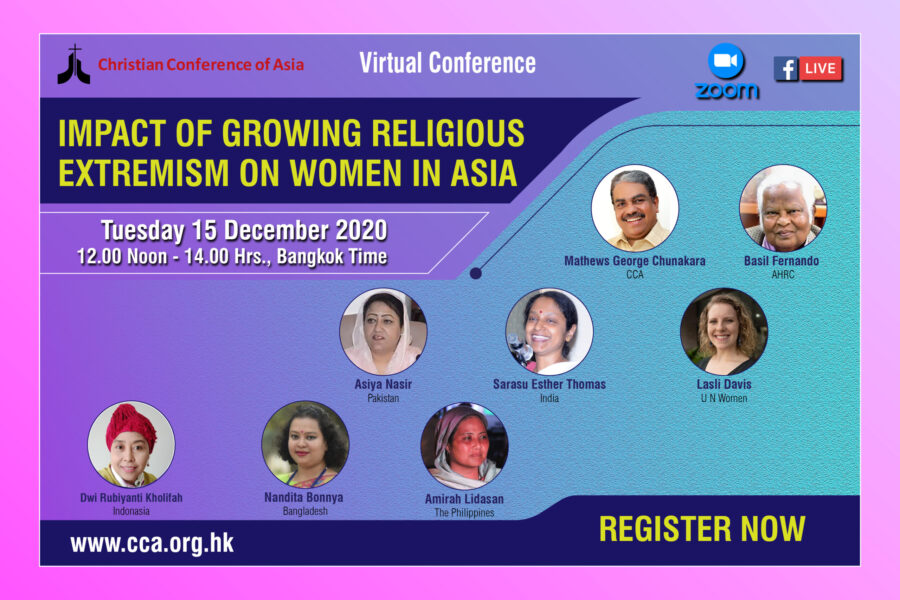CCA's webinar to highlight ‘Impact of Growing Religious Extremism on Women in Asia’

A webinar on ‘Impact of Growing Religious Extremism on Women in Asia’ will be held on Tuesday, 15 December 2020, at 12 noon (12 PM) Bangkok (Thailand) time.
Religious extremism is a growing menace in the Asia region. It has intensified intolerance and conflicts, with profound impacts on the lives and livelihoods of women. The consequences on women from religious minorities are even greater, as they are subjected to oppression and violation of their rights and dignity. The Christian Conference of Asia (CCA) will address this major concern in a webinar on the 'Impact of Growing Religious Extremism on Women in Asia', scheduled to take place on Tuesday, 15 December 2020, at 12 noon (12 PM) Bangkok (Thailand) time.
The facilitators and panellists of the webinar will comprise Ms Lesli Davis, Peace and Security Analyst at UN Women; Prof. Dr Sarasu Esther Thomas, Registrar of the National Law School University in Bangalore, India; Ms Asiya Nasir, former Member of Parliament in Pakistan; Ms Amirah Lidasan, a Moro woman activist from Mindanao in the Philippines and General Secretary of the Moro Christian People’s Alliance; Dwi. Rubiyanti Kholifah, Peace and Human Rights activist of Asian Muslim Action Network in Indonesia; Ms Nandita Biswas, the Youth Secretary of the National Council of Churches in Bangladesh and women’s rights activist; and Mr Basil Fernando, a prominent Asian human rights' defended and Director of the Asian Human Rights Council (AHRC) in Hong Kong.
Dr Mathews George Chunakara, the General Secretary of the CCA, will be the Moderator.
Please register here to receive the Zoom ID and passcode for participating in the webinar:
https://us02web.zoom.us/j/87875026294?pwd=MWtCaXVhbmYzV2lLRmw3a0NpSUs0Zz09
For additional details, please refer to the Concept Note here.










